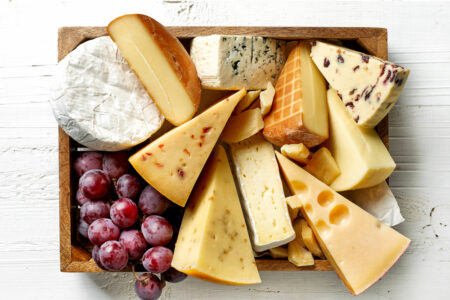A tribute to girl power

Image: Dairy UK
Women in Dairy in the UK is a group for those of us in the dairy industry who are female, as part of the Royal Association of British Dairy Farmers. This year, it is holding its annual conference in Worcester, UK, complete with a Dairy Woman of the Year competition, as well as discussions around various aspects of the business. All three dairy farmers seem very worthy winners, so it will be a challenge for the judges to decide between them.
Women have always had a large place in dairy, especially at the farming end. There’s the obvious point of all females producing the milk in the first place. Dairy farmers play a significant role in sustainable agricultural production, and women make up a large portion of the world’s livestock keepers. In fact, two-thirds of the 600 million poorest livestock keepers globally are women, and 90 per cent of the income they earn is ploughed back into their family or society, according to Ridgeway Research (ridgewayresearch.co.uk).
Dairy UK notes that 37 million of the 133 million dairy farms globally are female-headed, with 80 million women worldwide engaged in dairy farming to some extent. While women don’t own a lot of land globally, they do keep the livestock on the land.
In places like India and Africa, women are the agents of change for the increased efforts of organising the markets to sell milk for a living wage, with milk collection centres and setting up dairy cooperatives, the International Livestock Research Institute notes. (ilri.org) Helping farmers address the shortfalls in productivity through better animal health and feeding, along with getting vehicles and setting up centres, has paid dividends in the world’s poorest areas.
When women’s income and decision-making power rises, the benefits are manifold, trickling from families to communities and society, from one generation to the next. Investing in women’s economic empowerment affects many of the UN Sustainable Development Goals (SDGs), from ending poverty and reaching gender equality to promoting more inclusive economic growth, the International Atomic Energy Agency points out. (iaea.org)
In the meantime, the next time you have a glass of milk or any other dairy product, thank a female for it. You’re welcome.
- Suzanne Christiansen, editor, Dairy Industries International.
Keep in touch via email: [email protected]
Twitter: @dairyindustries or LinkedIn: Dairy Industries International magazine.



